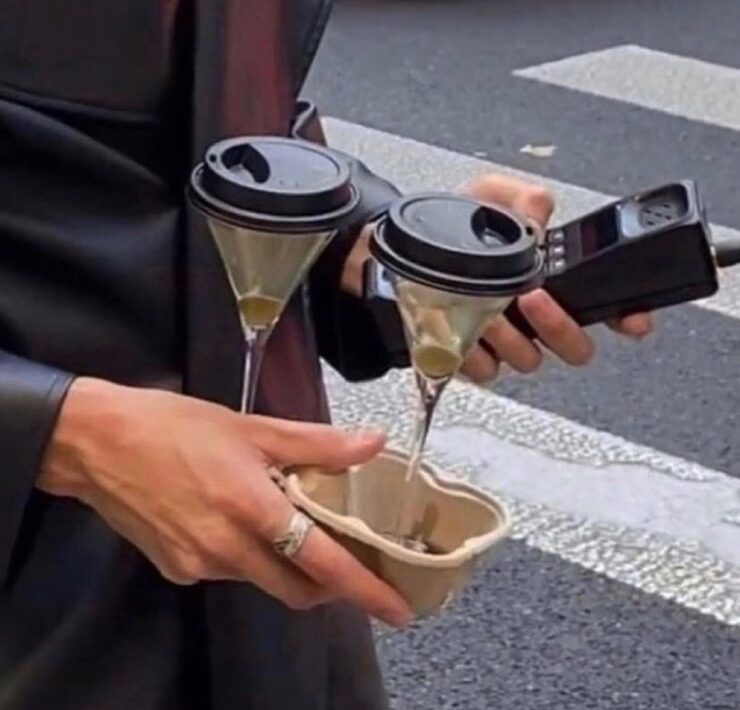Zanele Muholi: The Visual Activist
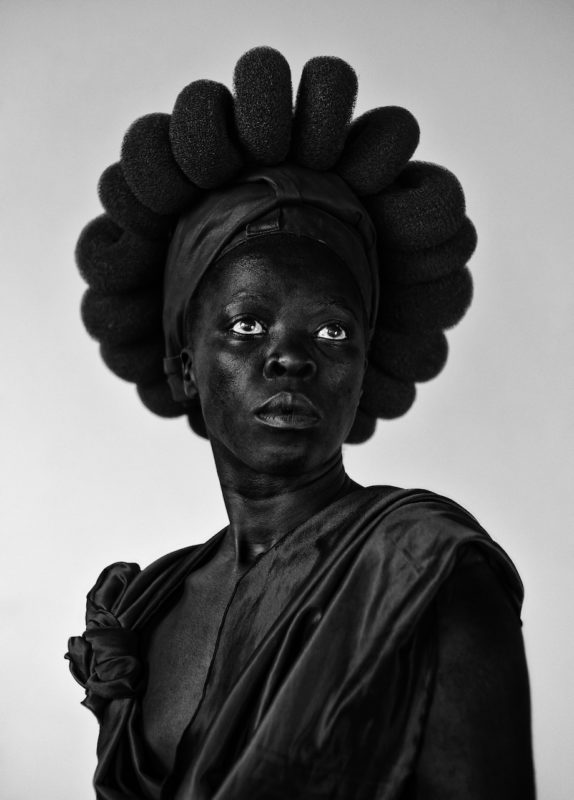
Zanele Muholi’s works were on display this summer at the Kiss My Genders exhibition at the Hayward Gallery in Southbank, London–a preview of what’s to come for the South African artist’s highly anticipated solo show at the Tate Modern in April 2020.
“Art for them, is a means to an end,” states Zanele Muholi in an interview with Kerryn Greenberg, curator of the highly anticipated 2020 Muholi solo exhibition at the Tate Modern, beginning April 29. South African photographer, Zanele Muholi, who identifies as non-binary, takes the collective pronoun them, to establish a resistance to the categorisation of sex. Akin to their deviance of a classificatory identity, Muholi is a visual activist who, in 2006, began challenging the hetero-patriarchal prejudices upon race and sexuality in the oppressed minority of lesbian women and the non-gender conforming community of colour in South Africa. By mode of photography, video and installation, Muholi has since produced copious representations of beauty, not in spite of marginalised xenophobia and homophobia, but in the face of it – in an unapologetic, celebratory “reclaiming of [their] Blackness.”
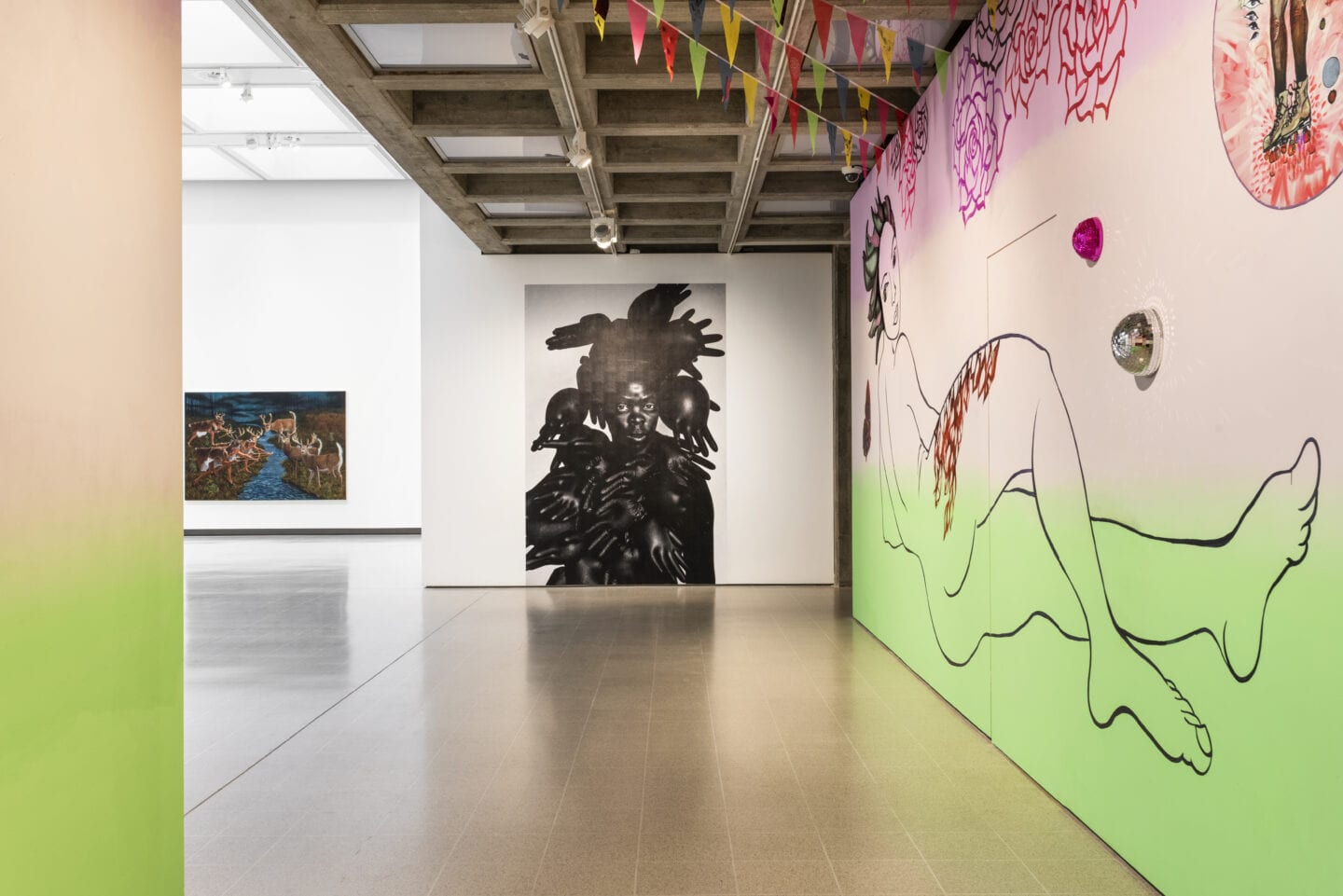
Muholi’s work is currently on display at the Kiss My Genders exhibition at the Hayward Gallery in Southbank, London. Here, photographs from the artist’s 2012 ‘Crime Scene’ collection and the on-going series; ‘Somnyama Ngonyama: Hail the Dark Lioness’ (2009-present) are exhibited. In the ‘Crime Scene’ series, the print titled Crime Scene #4 (2012) reveals the brutalities of homophobic racism in South Africa, to which the presence of sexual violence is inescapable to the viewers’ eye. Being a homosexual, black activist, Muholi illustrates the devastating realities of bigotry to a community of LGBTQIA+ people in a society already fractured by discrimination imposed by apartheid. Despite Mandela’s abolishment of segregation in 1994, the series connotes that the population of black, lesbian women living in post-apartheid South Africa, are still thrust to the the role of “other” and as a consequence, live in threat to oppression. As Muholi claims, “art needs to be political” and that is exactly what is presented in this series; in the painfully implicit photographs, the artist presents the adverse culture of the ‘rainbow nation’ still discriminatory to minority groups.
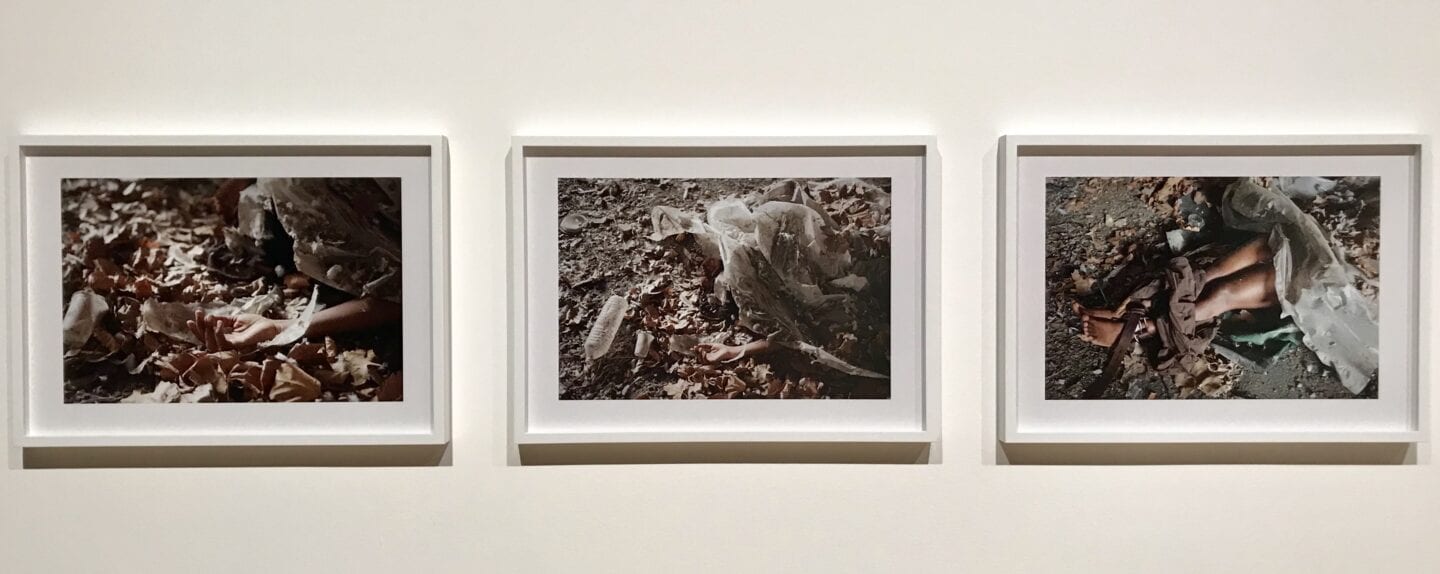
However, in contrast to the narrative of victimhood portrayed in ‘Crime Scene,’ as one ventures upstairs in Hayward Gallery, they are met with a piece from Muholi’s series, ‘Somnyama Ngonyama: Hail the Dark Lioness,’ that emits a fierce strength of selfhood. The enormous Phila I, Parktown (2016) is one of 365 self-portrait photographs, monochrome in palette, that demonstrate Muholi as a representative of defiance to a male gaze, hetero-normative gaze, sexualising gaze. The play between the exposure and tone intensifies the contrast of black and white in the photograph, which implies the political instability of racial divide felt by Muholi.
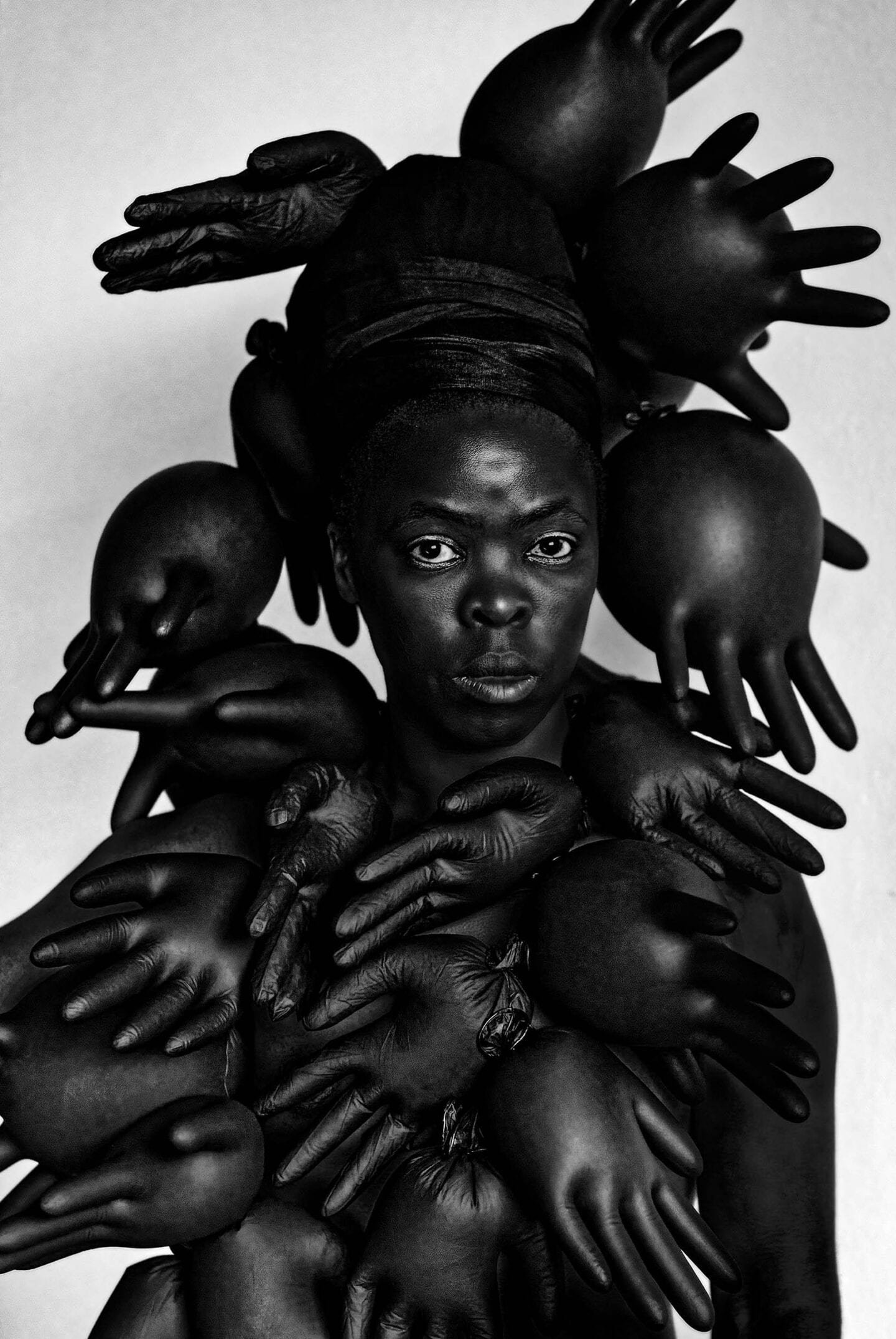
Nevertheless, a valiant bravery is presented by the artist’s posing of arbitrary objects as political props to conjure a headdress that imitates that of a lioness’ mane. By means of latex gloves in Phila I, Parktown, Muholi articulates a message of selfhood that can be read as, irrespective of the many hands that attempt to construct my identity; I will not be ordered to subjectification. I am individual and that is what makes every individual beautiful. So, when Muholi states that identity “is continuously performed by the privileged other,” one could analyse the many hands on Muholi in Phila I, Parktown as indicative of the “privileged other” who are really full of politicised hot air.
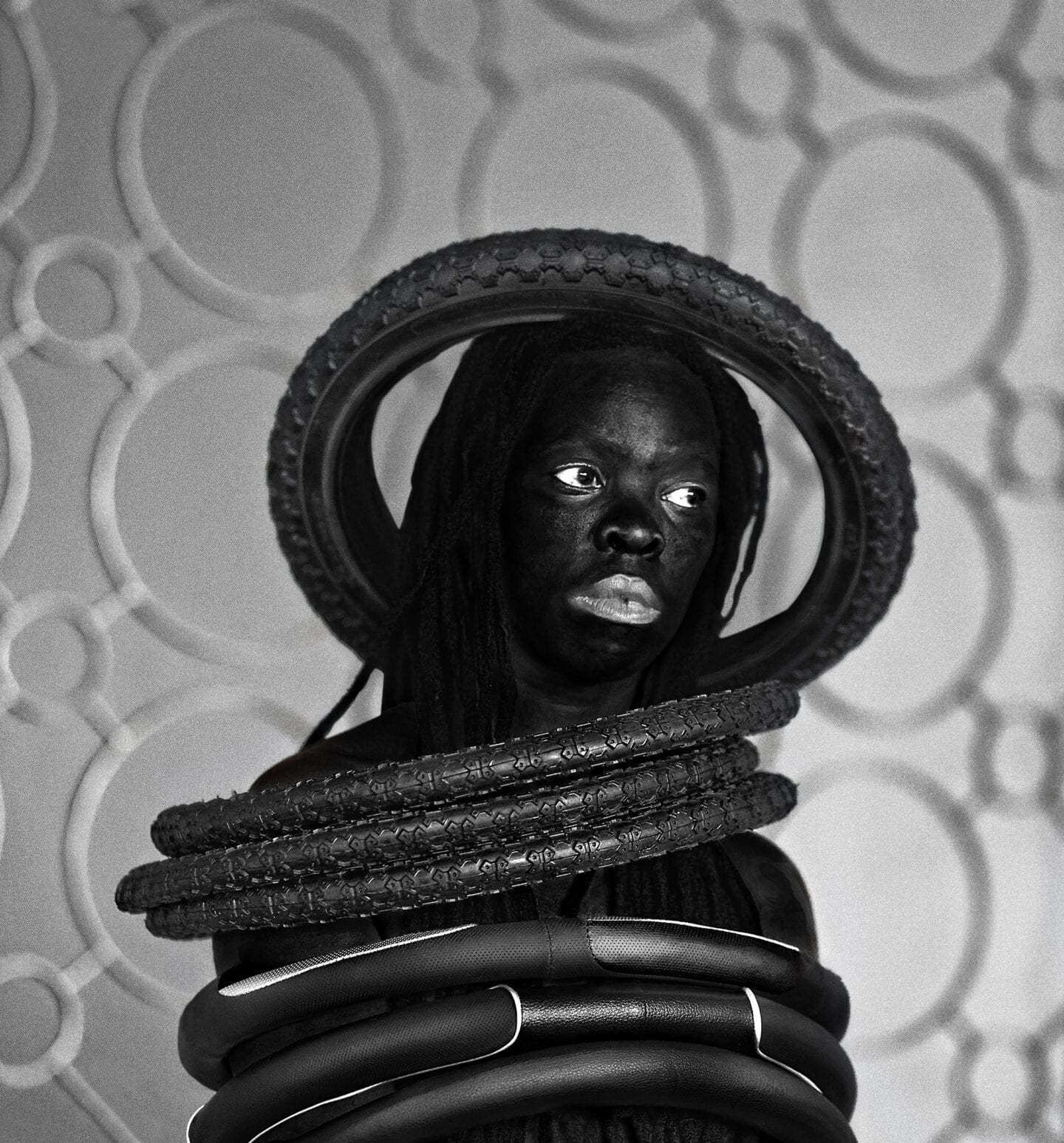
In this respect, Muholi’s work is as much artistry as it is activism. Another photograph in this series titled, Ziphelele, Parktown (2016) – not exhibited at Hayward Gallery but expository of this political latency – depicts Muholi in a headdress formed of bicycle tyres, hence referencing the horrific torture of necklacing in South Africa. Muholi’s photography, alongside the organisation, Forum for the Empowerment of Women (FEW) co-founded by Muholi in 2002, and Inkanyiso, a platform of visual activism was founded by Muholi in 2009, assemble to convey Muholi as a forward thinking, inspiring activist in today’s society. Following a visit to the Kiss My Genders exhibition, it could be said that the series, ‘Somnyama Ngonyama,’ highlights Muholi’s audacious and artistic selfhood, adorned in political controversy, to ultimately shine as a direct confrontation to sexual and racial prejudice.
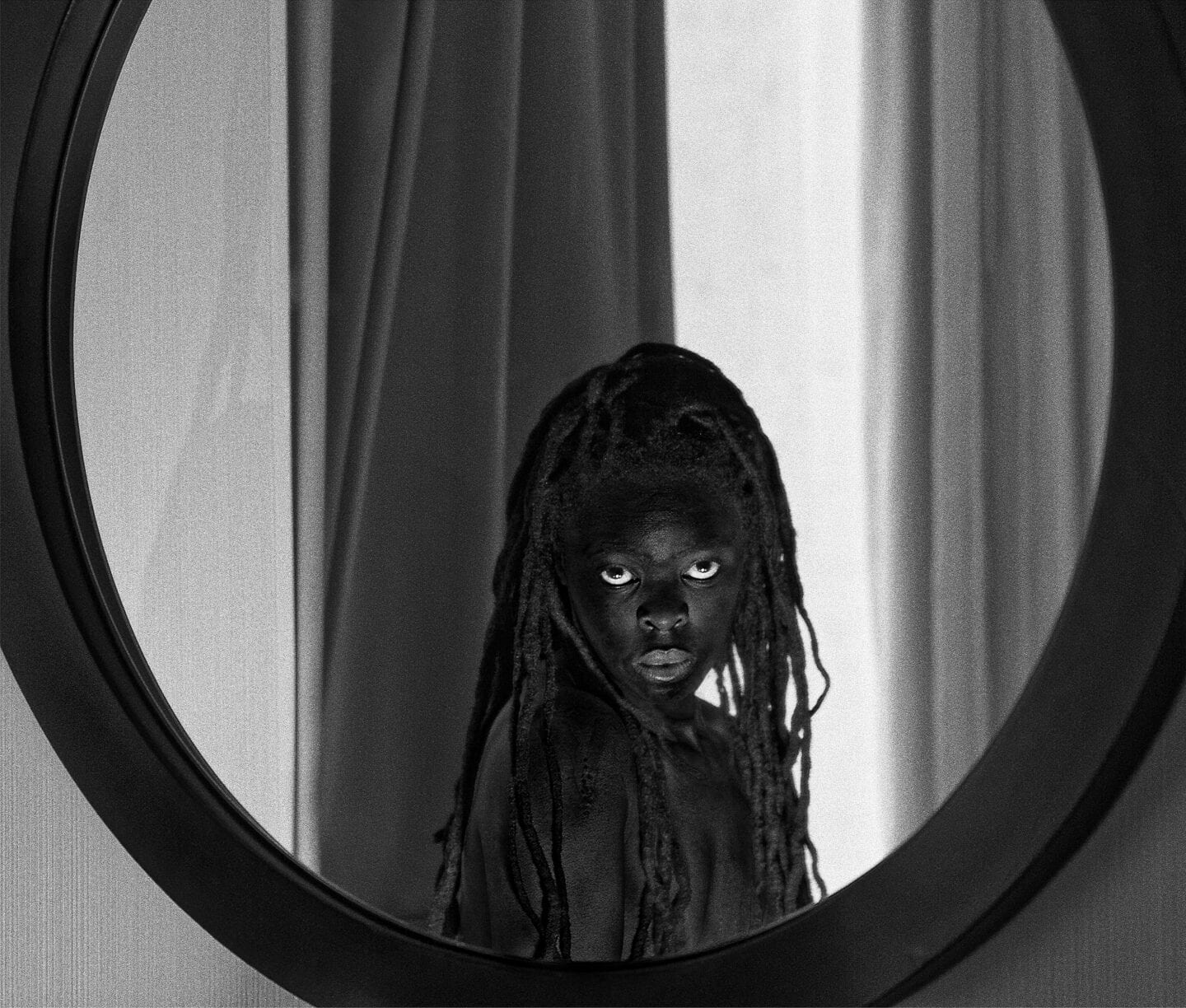
Muholi’s photography is currently displayed at two London galleries; Hayward Gallery and Somerset House. You can also see the artist’s work, Siphilile Muholi, Quarter Hampton Inn, Hilton Chelsea (2016) at the Get Up Stand Up Now: Generations of Black Creative Pioneers exhibition at West Wing Gallery, Somerset House, London. An argument could be made for the presence of Muholi’s pieces currently being showcased at two entirely different London exhibitions as denotative of the pertinence of the issues explored in the artwork. For some, race and sexuality unfortunately remain topical areas of humanitarian debate; however in Muholi’s photographs, the visual activist offers a simultaneously intimate and powerful insight into the politics of oppression amongst minority groups.


